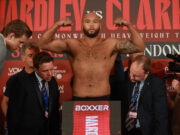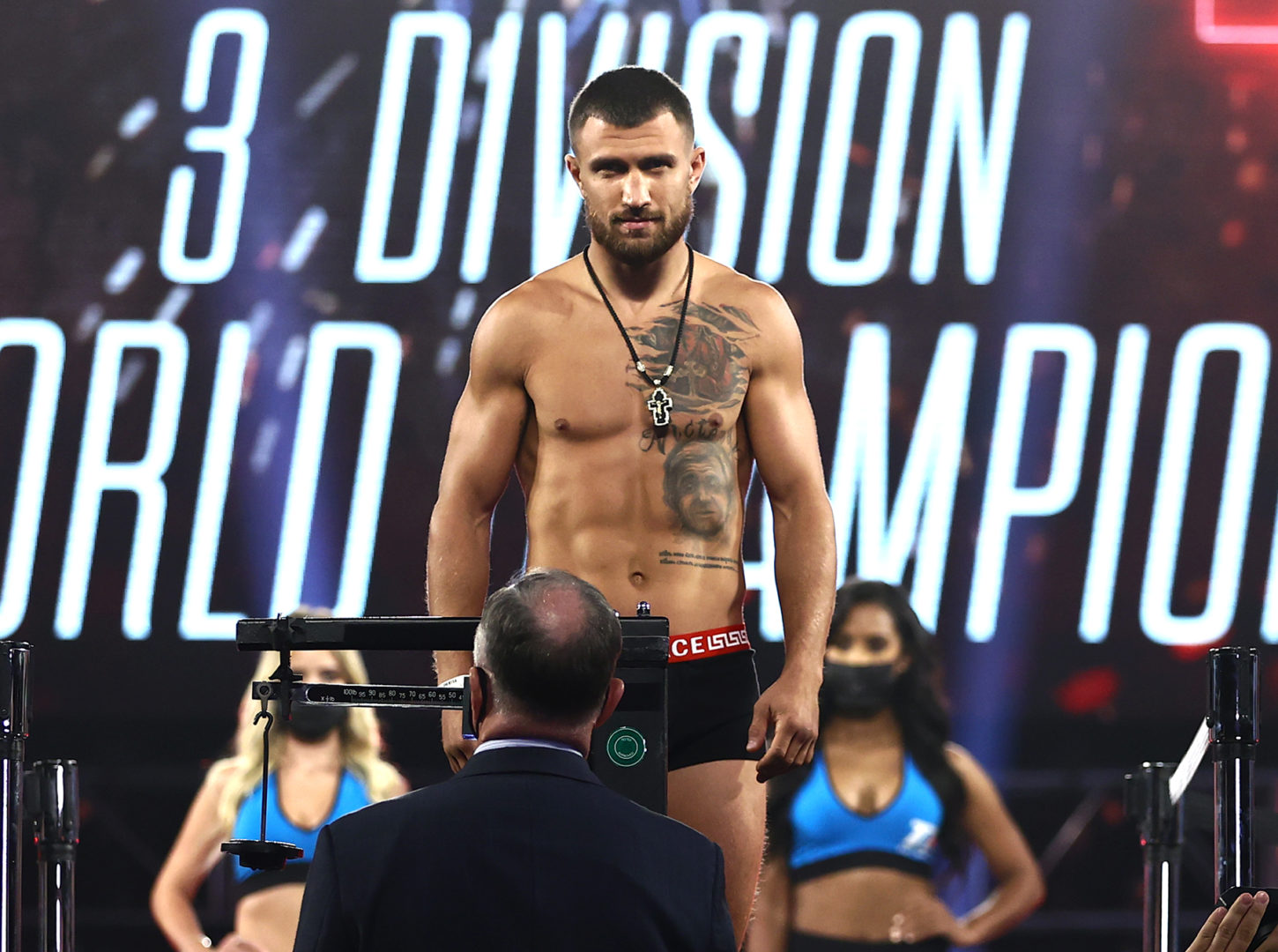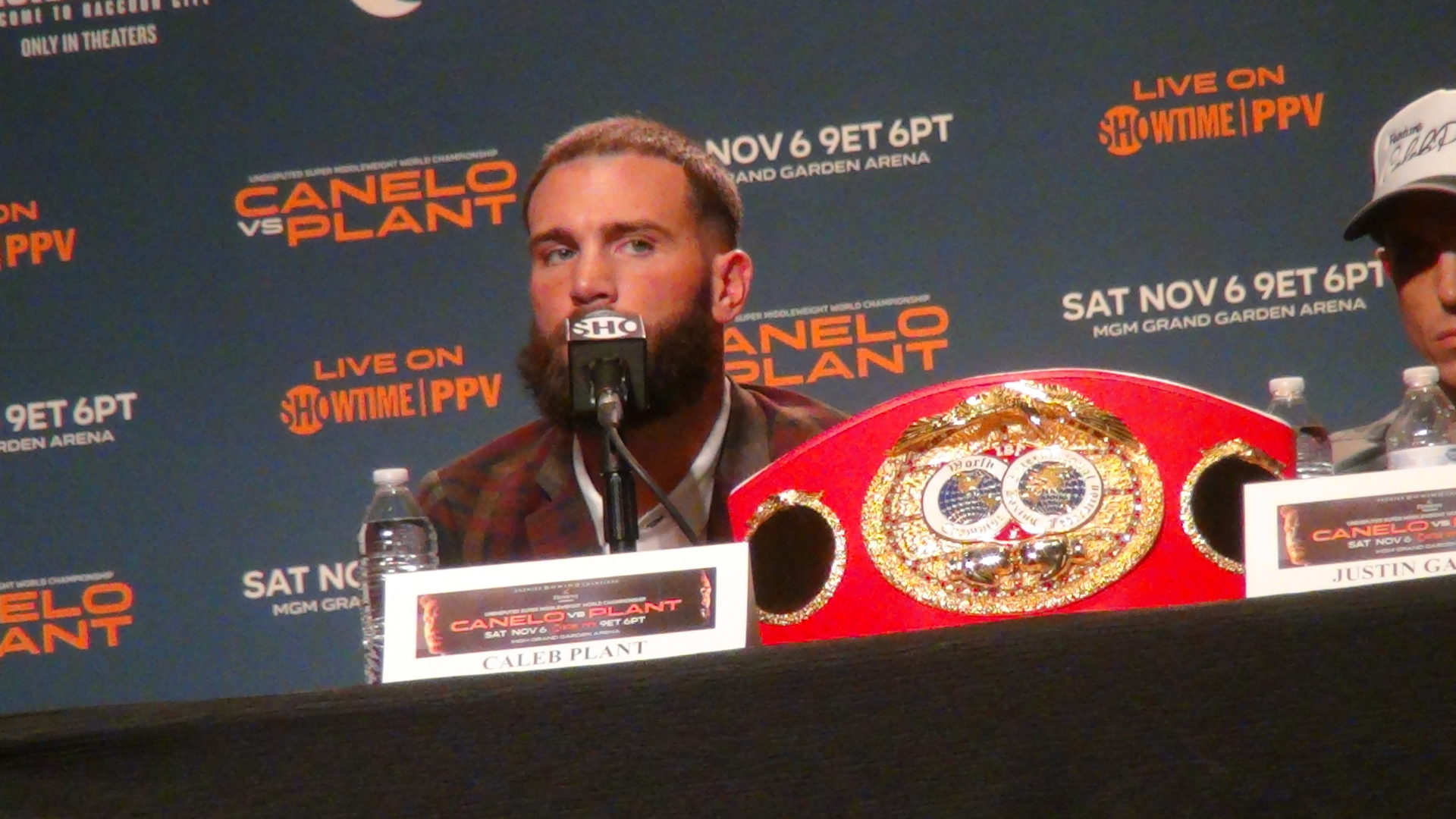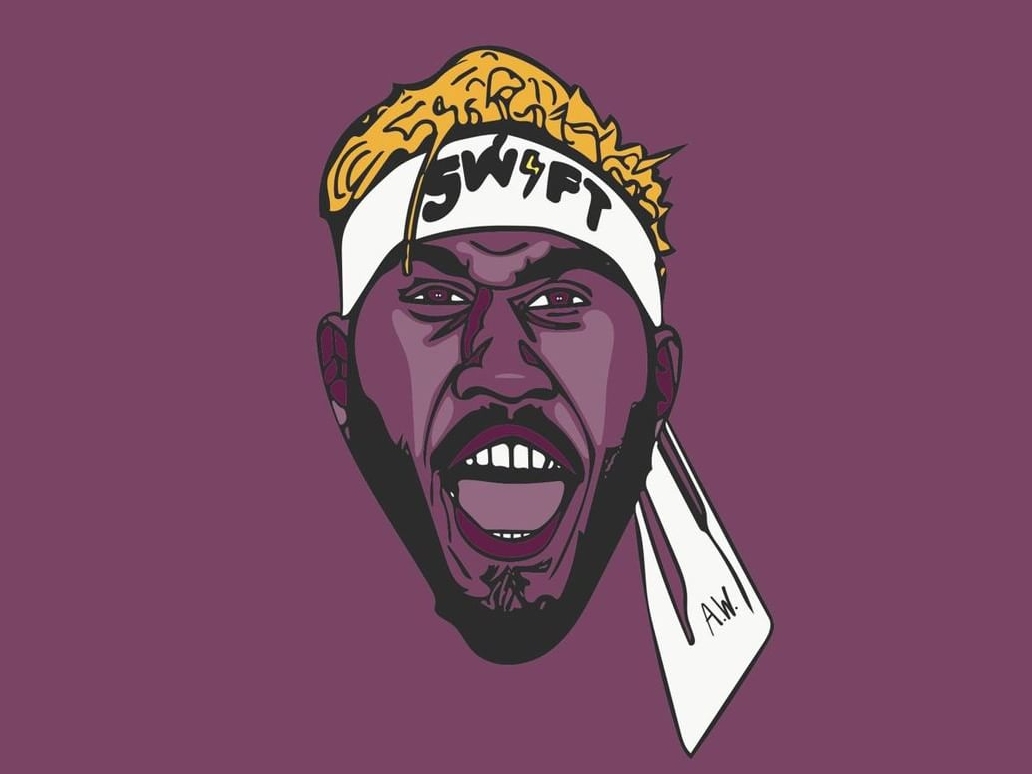By Jimmy Tobin-
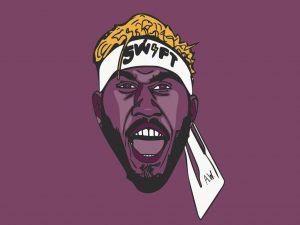
Jarrett “Swift” Hurd defeated Erislandy “The American Dream” Lara by split decision at the Hard Rock Hotel and Casino, in Las Vegas, Nevada, Saturday night, consolidating a little hardware and his claim to the division’s crown. More importantly, Hurd and Lara managed this junior middleweight sorting in a manner befitting a rematch were not one of the brothers Charlo ready to determine the class of the division. Hurd’s reputation for belligerence already precedes him, but incredibly Lara too was responsible for salvaging a mostly dismal card in a mostly vacant arena on mostly Sunday morning.
Why did this card, one that seemed somewhat promising, need salvaging? In the opener, Julian Williams went the distance with pedestrian Nathaniel Gallimore, showing recovery enough in his three fights since being decapitated by the other brother Charlo to become a mandatory for another remarkable beating, this time at the fists of Hurd. In the equally forgettable co-main, James Degale avenged by ugly decision his loss to Caleb Truax, proving that he is barely better than the fighter who lost to Truax in December. As for the version of Degale that drew with Badou Jack? That fighter is no more. And after all this, a Lara fight that began at 12:30am on the east coast?
Yet while rightfully maligned for his brand of inaction, Lara fought Hurd with an aggression he typically spares even his most overmatched opponents. He drew many a proverbial line in the sand, and when Hurd shuffled inexorably through it, threw not to escape Hurd but to punish him. When the punches landed—as they tend to against the ironically monikered “Swift”—and Lara again moved beyond reach, instead of preserving that range he readied himself to impose once more this aggression-tax.
This was not a man sublimating his instincts, mind you, as Wladimir Klitschko did in his valiant defeat to Anthony Joshua. It would be wrong to recast Lara on the basis of his performance Saturday night—he was courageous, yes, but fell short of endearing. Because Lara owed his decision to stand and fight his most imposing opponent yet to age, to the absence of a viable alternative. And, of course, to Hurd, who gladly let Lara draw those lines in the sand, believing full well that at some point the fight Lara dared Hurd to bring would be the only one unfolding—and that that fight, made earnestly as all Hurd fights are, would be too much for a fighter with aging legs and a negative style. There is no choice when options are removed, and even had Lara chosen (rather than been forced) to fight more doggedly, the price of stalling Hurd was clear enough to make a spectator await expectantly the fight’s second half.
It was over the last six rounds that Lara, whatever the camera angle, slowly disappeared, his dimensions seemingly shrinking with his prospects for victory. He became lost under Hurd’s shoulders, pinned away from view behind Hurd’s back. Glimpses of Lara first skipping, and then slipping, and finally tripping away from his looming opponent, revealed a fighter more and more broken the more infrequent his escapes. No surprise then, that the midround moment when they were longest and most clearly separated, when Hurd floored Lara in the eleventh, was the one that delivered Hurd the victory. That knockdown, a protracted crumpling of the legs, not chin, one born of attrition more than power, provided Lara his longest respite.
Yet Hurd did not have his way with Lara, at least not entirely, something that should not be lost in how he carried the action. His way reflects his physicality, his ability to absorb punishment as much as administer it. Because it is near impossible to believe a fighter can be coached to take as many flush punches as Hurd, as though wager of his chin were a calculated risk instead of simply a flaw uncorrected or ignored. Lara hit him hard, cleanly, and for a few rounds with impunity, and Hurd shrugged off convincingly that abuse, though it was difficult to watch him take leather and not think about how every Margarito meets his Mosley. Interviewed after the fight, future Hurd opponent, Jermell Charlo, quite rightly observed that Hurd cannot fight Charlo as he did Lara, that the penalty for closing distance behind his chin that night could be one Hurd might have to wake up from to fully appreciate.
Not that Hurd is likely to heed any such warning. He is not one to deny his opponent’s success because their success has yet to eclipse his own, and perhaps because he interprets their success as proof that every fight, regardless of its beginnings, turns inevitably in his favor. Yet one gets the sense there is less arrogance at work here than honesty, that Hurd appreciates the cost of imposing his advantages and thus sees no reason to deny it. A fighter whose primary and most mischievous tools are left hooks to the body and rear uppercuts doubled, even tripled, and who accepts all consequences of this, is honest. And honesty, a trait especially endearing and uniquely instantiated by volume punchers, is reflected not only in Hurd’s work but in its result: an ass whoopin’.
Hurd’s attempt to grind down the boxer Charlo, to confirm the matchmaker’s formula, will be one to watch. And if it isn’t next, because that makes too much sense, the least they can do is slate it for the day the broadcast starts.


